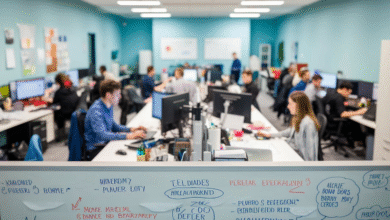How AI is Redefining the Sound of Modern Music

Introduction
The music industry is undergoing a profound transformation, and at the heart of this change lies artificial intelligence. From composition to mastering, intelligent tools are reshaping the way artists, producers, and even listeners interact with sound. What once required a full studio and a team of musicians can now be executed with an algorithm, a few prompts, and a touch of creativity.
Whether you’re a seasoned artist or a curious beginner, understanding how this technology is changing the music game can help you ride the wave of innovation and stay relevant in an evolving sonic landscape.
The Rise of Tech in Music Production
AI has infiltrated every facet of music production. Algorithms can now generate melodies, harmonies, drum patterns, and even lyrics. Tools like Adobe Express and OpenAI’s Jukebox demonstrate that machines are capable of learning musical theory, genre nuances, and emotional tone.
Producers no longer need to spend hours perfecting every beat. With just a few parameters, intelligent music engines can create rich and complex soundscapes that rival human compositions.
Why Artists Are Embracing It
Many artists initially saw artificial intelligence as a threat to originality. But the narrative is shifting. Instead of replacing human creativity, it’s enhancing it. Here’s why artists are welcoming it into their process:
- Speed and Efficiency: Cuts production time dramatically.
- Inspiration and Experimentation: Generates unexpected ideas, helping break creative blocks.
- Accessibility: Aspiring musicians can now produce high-quality tracks without expensive gear.
Popular Tools to Try
Several platforms have made it easier than ever to create professional-quality sound:
- Adobe Express AI Music Generator
- AIVA – Great for cinematic and classical compositions.
- Soundraw – Generates custom music based on moods.
- Amper Music – A favorite among YouTubers and marketers.
Blending Genres Like Never Before
Tech-driven tools can easily merge diverse genres—think classical-infused EDM or lo-fi jazz-hop. Artists can train software on their own past tracks or favorite influences, ensuring the results retain a unique, personal style.
Legal and Ethical Questions
With new technology come new challenges:
- Who owns the track?
- Is it truly “creative”?
- Can it replace human emotion?
These are the debates taking place in academic, artistic, and legal communities.
The Road Ahead
We’re just scratching the surface. Real-time scoring in video games, adaptive soundtracks, and custom music for every listener’s mood are just the beginning.
One thing is clear: AI music is shaping the future of sound.
Conclusion
From unlocking creativity to democratizing music production, AI is revolutionizing the industry. Embrace the tools, experiment boldly, and let the algorithm amplify your vision.



